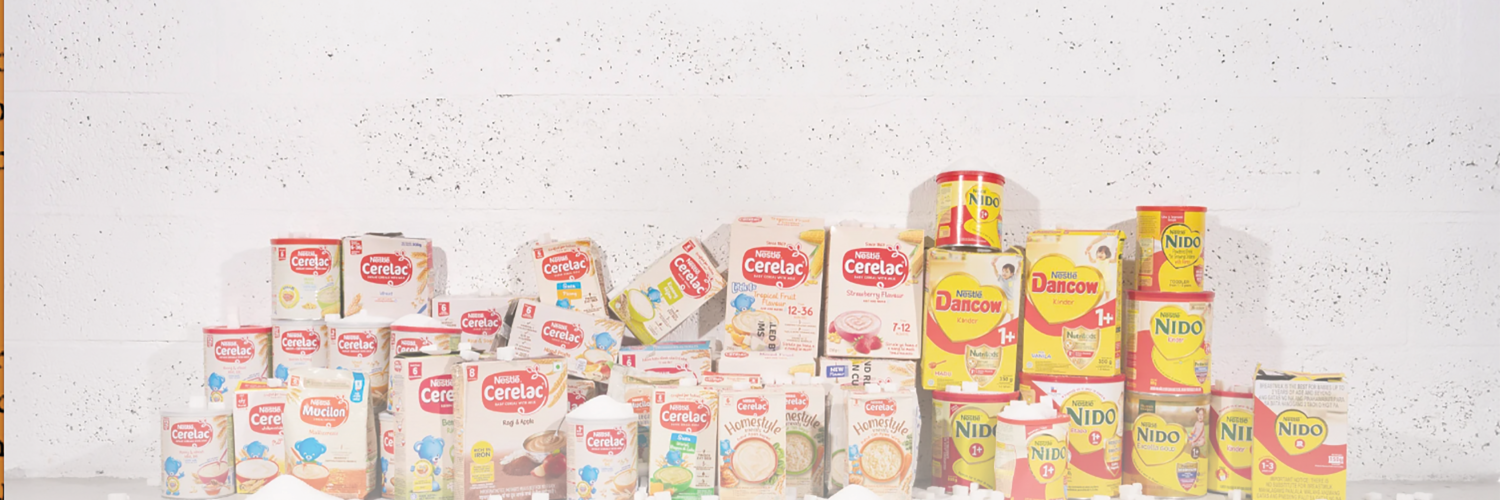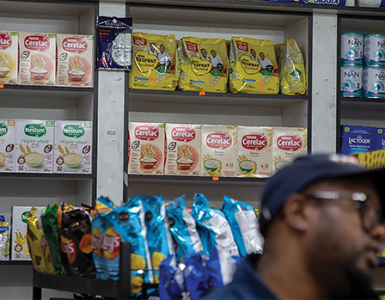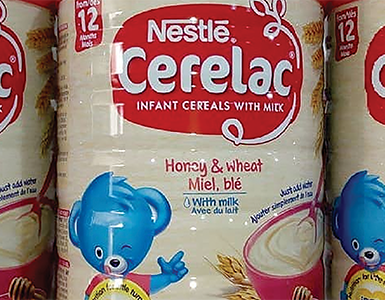FORMULA: The multinational announced this move after a probe by Swiss non-governmental Public Eye, which found that it has been adding sugar to its Nido and Cerelac baby formulations only in poor countries and not in wealthy countries…
By WSAM Reporter
Nestlé – under fire for adding sugar to its Nido and Cerelac baby food formulations in low and middle-income countries, including South Africa, but not in wealthier nations – is to stop adding sugar to baby foods.
This follows an investigation by Public Eye which analysed more than 150 Nestlé baby formula products. Working in collaboration with the International Baby Food Action Network (IBFAN), the entity found that two of the best-selling baby-food brands marketed by Nestlé in low- and middle-income countries contain high levels of added sugar, “while such products are sugar free in its home country, Switzerland”.
The researchers found in many cases that the same baby formula had no added sugar in Switzerland, Germany, France, and the UK, while they contained unhealthy levels of it in countries such as the Philippines, South Africa, and Thailand.
The investigation, titled “How Nestlé gets children hooked on sugar in lower-income countries”, revealed that the food giant added an average of four grams of sugar per serving to one of its best-selling baby formula products. Another popular brand, Nido, was found to contain an average of two grams of added sugar per serving.
Almost all the Cerelac infant cereals examined by the researchers contained added sugar – nearly 4 grams per serving on average, equal to roughly a sugar cube – although they are targeted at babies from six months of age. The highest amount – 7.3 grams per serving – was detected in a product sold in the Philippines.
Most of the Nido powdered-milk products for young children from one to three years old examined also contain added sugar – almost two grams per serving on average. The maximum value (5.3 grams) was detected in a product sold in Panama.
On the eve of its annual general meeting last week, Nestlé was slapped with a petition demanding that it put an end to “this unjustifiable and harmful double standard, which contributes to the explosive rise of obesity and leads children to develop a life-long preference for sugary products”.
The Public Eye report said: “Fifty years after the infant formula scandal, Nestlé claims to have learned from the past while doing everything it can to keep its world leadership in infant nutrition. The food giant controls 20 percent of the baby-food market, valued at nearly $70 billion.
With more than $2.5 billion in world sales in 2022, Cerelac and Nido are some of Nestlé’s best-selling baby-food brands in low- and middle-income countries. The multinational aggressively advertises these products as essential to children’s healthy development in its main markets in Africa, Asia, and Latin America”.
Nestlé has said it would stop adding sugar to its baby food products by the end of the year, saying it had been in the process of phasing out of these products by the end of the year.
In a statement, Nestlé said all its infant formula products for babies under 12 months of age did not contain added sugars.
“For the so-called growing up milks (GUMs), for children aged between 1 and 3 years, we started to phase out added sugars some time ago and the vast majority of these products do not contain refined sugar. We aim to reach 100% by the end of 2024,” said Nestlé.
In a question framed by the multinational itself: “Do Nestlé cereal products for infants and young children contain added sugars?” The company responds: “We have reduced the sugar in many of our infant cereals. While there are added sugars in some, we are making progress towards reducing this further, as well as providing more options without added sugar”.
Meanwhile paediatricians and child nutrition experts interviewed by Public Eye denounce a double standard that is unjustifiable and problematic from an ethical and public health perspective, particularly in view of the obesity epidemic affecting low-income countries.
The World Health Organization warns that exposure to sugar early in life can create a life-long preference for sugary products that increases the risk of developing obesity and other chronic illnesses. Since 2022, the UN agency has been calling for a ban on added sugar in products for babies and young children under three years of age.
“Whereas Nestlé recommends publicly to avoid baby foods that contain added sugar, it takes advantage of the weakness of existing regulations to continue selling such products in lower-income countries,” said Public Eye.
Furthermore, both Public Eye and IBFAN accused the Swiss multinational of using misleading marketing strategies, “such as utilising medical professionals and social media influencers to win the trust of parents in its products”.
The company’s head of nutrition, Thierry Philardeau, declaring in 2020 that 15 million babies relied on its products. That’s nearly the population of the Netherlands.































